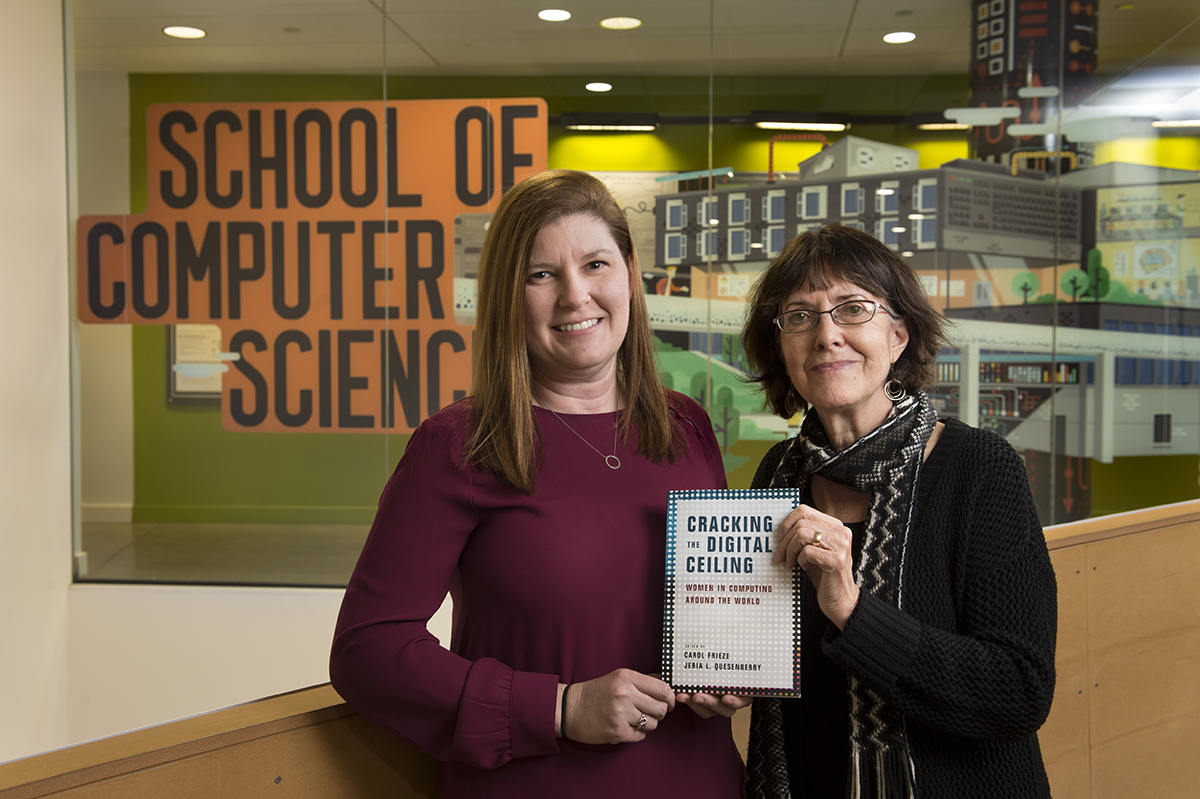New Book Offers Global Perspectives on Women in Computing
Virginia Alvino YoungThursday, December 12, 2019Print this page.

A new book edited by Carol Frieze and Jeria Quesenberry explores how different cultures address equity in computing. "Cracking the Digital Ceiling: Women in Computing Around the World" features a collection of essays that explore an unanswered question: Given that women are so poorly represented in computing in the U.S., what is happening to women in computing globally? The book challenges many western myths about why women are underrepresented in computing fields.
"We found there's no correlation between a country's gender equity and women's participation in computer science," said Frieze, a faculty member in CMU's School of Computer Science and director of its Women@SCS and SCS4ALL initiatives. According to the data presented in the book, Scandinavian countries like Sweden have some of the lowest rates of women enrolled in computing, while some of the highest numbers are in Saudi Arabia.
The editors said it often comes down to the difference between socio-cultural expectations and intellectual expectations. "What we found in India and Malaysia is that girls do not grow up thinking they're differently suited to jobs and studies in computing, even though you might find strong — and often restrictive — expectations for how women should behave socially," Frieze said.
"It's typical in the west to encourage our children to pursue studies they love, which often means studies that fit western gender norms," said Jeria Quesenberry, an associate teaching professor in the Dietrich College's Information Systems Program. "This works against fields like technology in the U.S., where computing is often perceived as a boys' field. Some cultures encourage their young girls and boys to build on their math and science skills regardless of gender."
"There's a growing awareness in the U.S. that computer science is changing our lives, it really does matter. A global perspective can help us recognize that women's participation in computing is shaped by cultural attitudes and influences, not innate ability. When we look to the future, women need to be there. It's amazing how long it's taking to happen," Frieze said.
The editors hope the book reaches educators in K-12 and post-secondary fields, administrators, companies working to address diversity, and anyone who may have preconceived notions about STEM interventions or programs.
"Change is hard, but it can happen when you pay attention," Frieze said. "You can change culture, and we saw that here at CMU when we focused on ensuring men and women were equally valued and received the same leadership opportunities, encouragement, visibility and mentoring. We worked to level the playing field and it paid off. CMU is a leader in sustaining higher than national averages for undergraduate women in computer science."
"Cracking the Digital Ceiling: Women in Computing Around the World" is published by Cambridge University Press and is currently available online and in stores.
Byron Spice | 412-268-9068 | bspice@cs.cmu.edu<br>Virginia Alvino Young | 412-268-8356 | vay@cmu.edu
